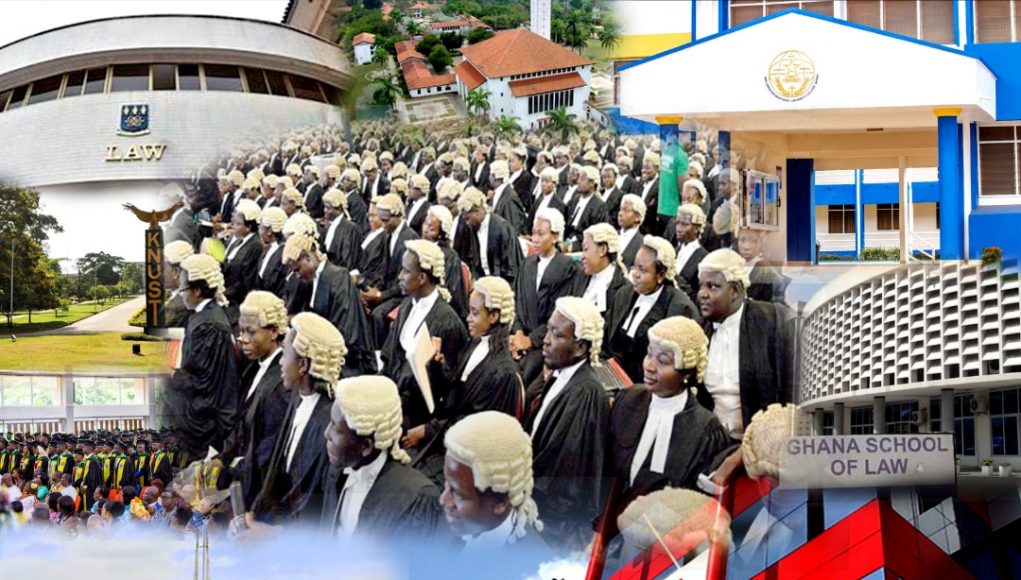Justice Philip Bright Mensah, a Supreme Court Nominee, has strongly advocated for comprehensive and holistic reforms aimed at democratising access to Ghana’s legal profession.
The seasoned Court of Appeal judge, speaking at his vetting before the Appointment Committee of Parliament, underscored the need for the country to pursue reforms that would provide both quality and accessible legal training for all Ghanaians interested in the law profession.
“During our days, it was only the University of Ghana that was offering law degrees, and from there, you went to the Ghana Law School. However, now the law degrees have expanded without the corresponding infrastructure to take care of all those students.”
Justice Philip Bright Mensah, a Supreme Court Nominee
This expansion, while seemingly positive, Justice Bright Mensah noted has created a significant bottleneck, directly attributing the soaring numbers of LLB graduates seeking professional training to infrastructural deficit.
Proposing a multi-faceted approach to alleviate the immediate crisis, Justice Bright Mensah first championed a concept of “immunity” for those LLB graduates who have successfully completed their degrees and are currently awaiting entry into the Ghana School of Law.

This “immunity” suggests a mechanism through which these students could be guaranteed admission, perhaps by leveraging the capacity of campuses like the Kumasi campus law school or UPSA, which are also offering legal training.
“Because invariably, everybody who has entered the law faculty to do LLB wants to become a lawyer in the long run. And I do not think it will be fair for us to impede the progress of the students who want to come to the law school.”
Justice Philip Bright Mensah, a Supreme Court Nominee
This sentiment underscores a belief that the system should facilitate, rather than hinder, the legitimate aspirations of its students.
Holistice Re-Evaluation
Beyond immediate relief, Justice Bright Mensah emphasized the necessity of a “holistic” re-evaluation of the entire legal education system
He called for a collaborative effort between the General Legal Council (GLC), the Director of the Ghana School of Law, and crucially, academia, to “chat best mechanisms for lasting change.”
This collaborative spirit is vital to crafting solutions that are both effective and sustainable. He also delved into a significant proposal circulating within legal circles: the idea of decentralising the professional legal training program by “sending the program being run at the law school… to the various law faculties.”
While acknowledging this as a potential solution, he swiftly highlighted a fundamental distinction: the law faculties traditionally provide a “basic foundation of the law (theoretical),” whereas the Ghana School of Law focuses on “professional courses (practical).”
This distinction forms the crux of the quality assurance debate. Should law faculties be empowered to offer professional courses, Justice Mensah asserted that the “responsibility of the General Legal Council ensuring that because here too we are talking about you know quality and quality assurance must be applied.”
This pragmatic stance ensures that any decentralisation of professional legal training would not come at the expense of rigorous standards.
The GLC, as the regulatory body, would therefore need to be intimately involved in overseeing these programs, ensuring uniformity and high quality across all institutions offering the professional component.

Justice Bright Mensah’s remarks gain particular resonance in light of the Government of Ghana’s active move to introduce a Legal Education Bill for parliamentary consideration.
This legislative initiative is touted by its proponents as a “major step towards democratizing access to the legal profession,” a goal that aligns perfectly with Justice Mensah’s broader advocacy.
Breaking Makola’s Monopoly
The core tenet of the proposed bill is to end the entrenched system by empowering some accredited universities that offer Bachelor of Laws (LLB) degrees to also offer professional training.
This means that the Ghana School of Law, historically headquartered in Makola, Accra, will lose its longstanding legal monopoly, effectively transforming into just one of several institutions authorized to train future lawyers.
The political will behind this reform is undeniable, exemplified by the Majority Chief Whip and Member of Parliament for South Dayi, Rockson-Nelson Dafeamekpor, who has publicly vowed that the bill will be passed under a “certificate of urgency.”
This signals the profound importance attached to the legislation within the government’s agenda, and it represents the fulfillment of a key campaign promise of the ruling National Democratic Congress (NDC) and President John Dramani Mahama.

The convergence of Justice Mensah’s expert advocacy and the government’s legislative push indicates a determined effort to address the long-standing challenges plaguing legal education in Ghana.
Ultimately, the collective efforts to reform legal education reflect a national commitment to fostering a legal profession that is both accessible and highly competent.
Justice Mensah’s call for holistic reforms, encompassing both immediate relief for current students and a systemic re-evaluation of training pathways, complements the legislative intent to liberalise professional legal training.
The future of Ghana’s legal fraternity hinges on the successful implementation of these reforms, ensuring that the increasing passion for law translates into a robust, well-trained, and ethically grounded cohort of legal practitioners.
READ ALSO: Fitch Upgrades Ghana to Stable ‘B’- Signalling Strong Recovery




















